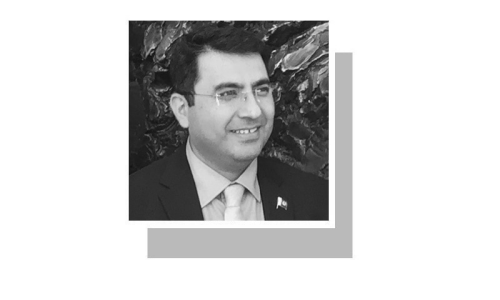
Apoet of vigorous accent, Anjum Qureshi was born to a banker and was raised in a conservative environment, conventionally designed for upbringing of middle class girls. She remembers the weekly rituals of oiling of her thick long hair by her mother who never allowed her to cut them short. But she never succumbed to the restrictions and kept on defying, sometimes by being vocal and sometimes by expressing her resistance by dressing herself in eccentric ways or applying nail polish of the colours which were considered odd for girls then.
“I never felt comfortable with this invisible cocoon and kept on resisting through my own individualistic approach. My first expression of freedom was to cut my hair short, a couple of months after I got married,” she recalls.
Like many other Punjabi children, Anjum was intentionally kept away from her language and her parents, who themselves belong to Punjab, portrayed the image of Punjabis as illiterate and ill-mannered people.
After doing masters in English literature, her first resort was English poetry, which got published regularly in Khaleej Times while she was living in the United Arab Emirates (UAE) with her parents.
“I have always found myself motivated and inspired to write; I used to write in English mostly, Punjabi came naturally, at a time when I was discovering myself.
“We were not allowed to watch Punjabi films, listening to Punjabi music and speaking Punjabi at home just to develop standard English and Urdu accents. I was 30 years old when, for the first time in my life, I listened to the songs of Noor Jehan and realised that I was kept deprived of such a big treasure.”
Meeting a group of modern Punjabi writers in the early 1990s when Anjum moved to Lahore was a watershed moment in her life. She found them in stark contrast to the Punjabi image planted in her mind by her parents. She says that the Punjab writers fluently spoke Punjabi, with slangs and swear words which attracted her. “The blunt expression and slangs helped me knit many of my poems later on. Initially, I was reluctant; I would call Maqsood Saqib and ask questions like, ‘Is it vulgar? Who is going to print them?’ I am grateful, he always encouraged me to stick to the writing style of my own and printed all my works which were considered ‘offensive’ or ‘indecent’ by many other people,” Anjum says.
In her own words, she was not familiar with Punjabi traditions of poetry and was shy about her diction. Many people suggested reading classics and adopting the diction except for Maqsood Saqib who encouraged her to be confident and use the diction she already had at hand.
“It helped me a great deal to keep my poetry away from being influenced and eclipsed by others and develop an idiom of my own,” she acknowledges the support she got from Punjabi publisher and writer Maqsood.
Unplanned and unintended, starting from a small quatrain, the Punjabi poetry became a lifetime romance for Anjum. With three books of poetry to her credit, she is currently working on fourth compilation of her poetry and editing one of the previous books to be printed as the second edition.
Gifted with sharp skill of rhyming, she knits delicate love poems, narrating the feelings of a passionate lover bluntly and boldly. She challenges the social norms without getting aligned to any political ideology. Most of her poetry, derived from her own experiences and observations, is spontaneously composed with a sound rhythm.
Published in Dawn, September 17th, 2017













































